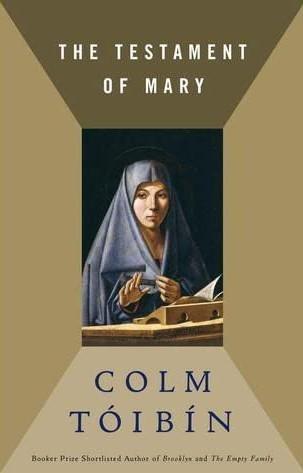
Patrick Grace's Reading Recommendation:
In early spring, I discovered Colm Tóibín's The Testament of Mary. I've tried but failed to dive into Tóibín's longer works, so this one, novella-sized, suited me. It was the only work of his in the Pulpfiction bookstore that day. The owner had never heard of it. I'm not a religious person, but the idea of a contemporary writer giving a voice to Mary struck me. It casts aside the biblical male point of view, sinking the reader into a personal narrative of a mother mourning her son. That's the heart of it. Grief. A woman who's lost everything and is ready to die at any moment from the dangers around her. The idea that Christ's resurrection was no more than a dream that Mary experienced is both daring and logical. In fact, the whole book holds a dreamlike quality. I think that's what sunk me in. I dream often. Sometimes my dreams linger around my childhood, or people I once knew and loved. Sometimes they're revelatory. I dreamed a lot the week I read this book. Tóibín's prose is exquisite and profound in the way he casts Mary as careful and watchful. She is witness, it's all she can be. Unhinged. Mortal. Surrounded by men who write history the way they want it told, as it often occurs so.
Patrick Grace is a queer writer in Vancouver, where he works as the managing editor of Plenitude Magazine. In 2020, his poem "A Violence" won The Malahat Review's Open Season Award for poetry. His poems are featured in the Autumn 2021 issue of The Fiddlehead and new work is forthcoming in Prairie Fire and EVENT.











Add new comment